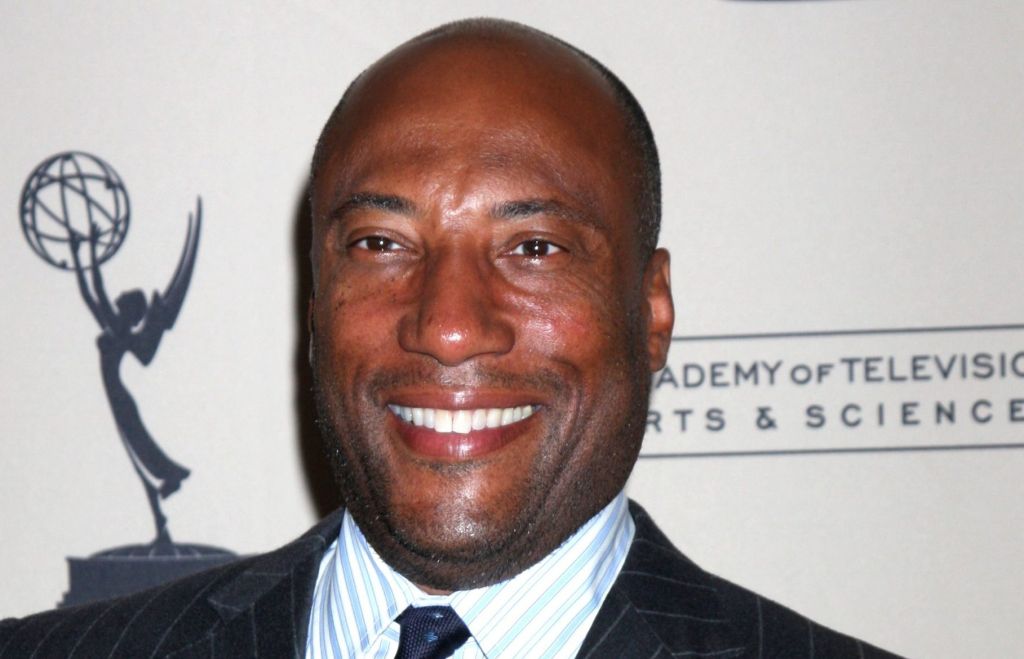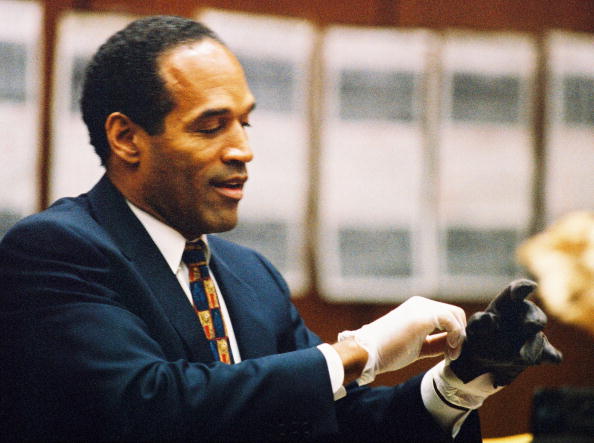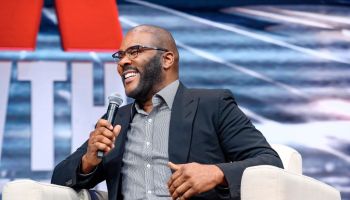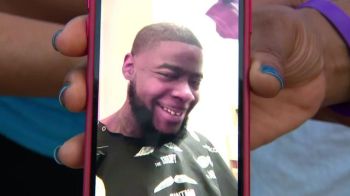
Source: WENN / WENN
UPDATED: 10:17 a.m. EST, Nov. 13 —
Media mogul Byron Allen will finally have his $20 billion fight against Comcast heard by the Supreme Court today. The CEO of Entertainment Studios is suing the massive company for not distributing his networks, claiming racial discrimination as a factor. The court will now decide the threshold for a racial discrimination claim. They could take Comcast’s side by asserting that the plaintiff must meet a “but for” standard to file a valid discrimination claim, or in other words, he must prove that Comcast discriminated against him 100 percent because he is Black. On the other hand, the court could take Allen’s side, in which the plaintiff only has to prove that race was a motivating factor in Comcast’s decision. So in other words, Comcast can’t absolve themselves from the case by simply claiming that it had business reasons for rejecting Allen’s channels.
The case has caught the attention of the nation, considering the outcome can have major implications on a entity’s ability to seek damages for racial discrimination. Everyone from the NAACP to Congress members have joined Allen’s side in the case. According to Deadline, Sen. Cory Booker (D-NJ) and Sen. Kamala Harris (D-CA) joined NAACP officials for a “tele-town hall” on Tuesday, discussing the case.
“If successful, Comcast’s arguments would, in many cases, impose an impossible pleading burden on victims of discrimination and prevent them from vindicating meritorious claims,” attorneys for the NAACP Legal Defense & Education Fund explained in a friend-of-the-court brief back in September.
On the other side of the argument, the U.S. Chamber of Commerce claims that a decision in favor of Allen would result in a flurry of “burdensome litigation and undeserved reputational harms” on companies, and would likely “prevent businesses from evenhandedly and fairly applying workplace standards in circumstances when doing so would be good for companies, coworkers and consumers alike.”
Allen — who now owns networks like The Weather Channel and has recently acquired 11 local TV stations affiliated with CBS, NBC and ABC — started his fight against Comcast in 2015. According to The Hollywood Reporter, he sued cable operators and satellite distributors after they refused to license his small channels that covered topics like criminal justice, cars and pets. He and his legal representation demanded billions of dollars for allegations of a racial bias conspiracy.
The NAACP and Al Sharpton were originally co-defendants in the lawsuit for allegedly making moves to “whitewash” Comcast’s discriminatory business practices. According to the suit, when Comcast sought regulatory approval for its 2010 plan to acquire NBCUniversal, it needed to gain support. To assuage any worries that the merger would have bad effects on diversity, Comcast made voluntary commitments and entered agreements with various civil rights groups like the National Urban League, the NAACP and Al Sharpton‘s National Action Network.
However, Allen rebuked these agreements and questioned the monetary donations that Comcast contributed to these civil rights groups. He further questioned how Comcast was shelling out $25 billion annually on channel licensing, but less than $3 million on what he described as “100% African American-owned media.”
At the time, folks like Sharpton denied that his monetary gains were because of agreements him or his organization entered with Comcast. He even threatened a defamation lawsuit against Allen.
However, eventually Sharpton and other civil rights groups were dismissed from the lawsuit and some of them ended up supporting Allen, including the NAACP.
Allen’s suit was rejected three times by a district court judge who concluded that there was no plausible case that discrimination caused Comcast to not license Allen’s channels. However, eventually the 9th Circuit Court of Appeals announced that Allen only needed to plausibly allege that discriminatory intent was simply a factor in — not the “but-for” cause of — Comcast’s refusal to license his channels. Allen and his team were able to prove this, considering Comcast was carrying about 500 networks that Verizon, AT&T U-verse and DirectTV were carrying, but unlike these carriers, Comcast didn’t carry Allen’s channels. Meanwhile, Comcast was offering carriage to “lesser-known, white-owned networks” like Current TV, Fit TV and Baby First Americas.
Now, Allen’s case is being heard by the Supreme Court. Byron believes Comcast and his adversaries are violating the Civil Rights Act of 1866, which followed the legal abolition of slavery. Back then, Southern states were naturally upset with the new freedom of former Black slaves so they enacted the “Black Codes” to compel them to work through low-wage contracts and debt. Congress responded by passing a federal law that could hopefully achieve “practical freedom” for ex-slaves, including a prohibition of discrimination when drawing up or enforcing contracts.
The 1866 Civil Rights Act was a bit of a broad stroke striving for equality. According to Allen’s Breakfast Club interview, Comcast is asserting that in order for Byron to use the 1866 act, he or anybody else has to prove “that the reason we discriminated against you is 100 percent because you are Black.” Allen and other civil rights groups argue that by reading a “but-for standard” into the anti-bias contracting law, attempts at eradicating racial discrimination could be threatened. “It can be 99 percent that you’re Black and one percent that you’re wearing tennis shoes and you can’t use the law,” Allen explained on The Breakfast Club.
The outcome of the court hearing today will clearly have implications for Black entrepreneurs and workers in the future.
SEE ALSO:
Black Women’s Group Slams Studio Behind ‘Harriet’ Movie For Trying ‘To Exploit Black Genius’
National Day Of Outrage Demands Justice For Atatiana Jefferson, Black Women Killed By Police
















